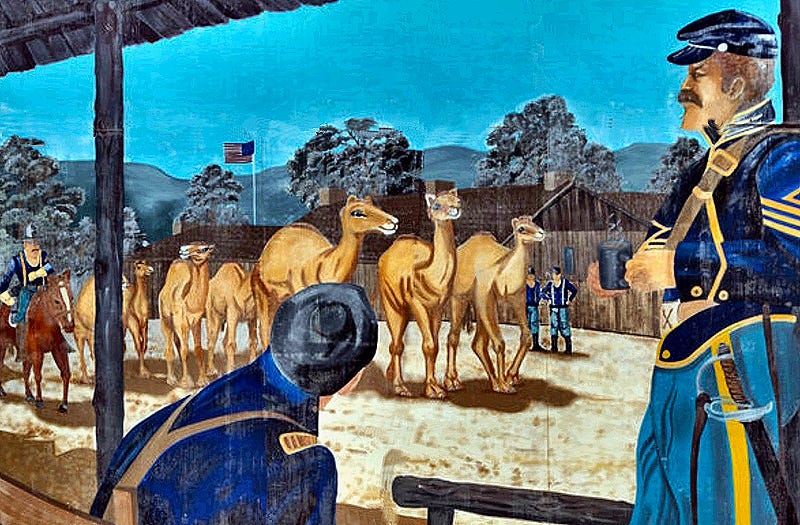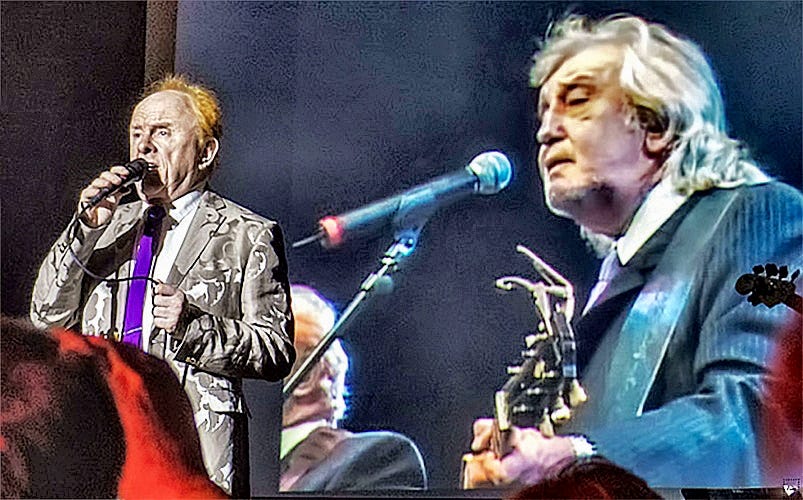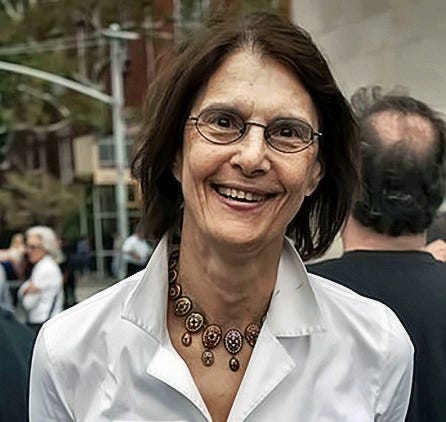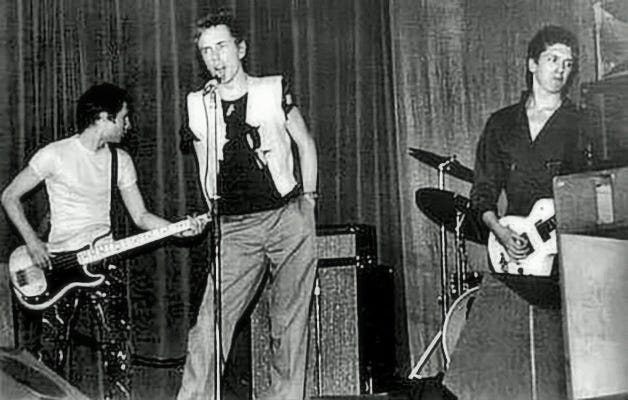Michelle Phillips, the last survivor of the Mamas & the Papas, is 79 years old today
Michelle and John Phillips
Michelle Phillips is 79 years old today.
A singer, songwriter and actress, Phillips was a member of the 1960s group, The Mamas & the Papas, and is the last surviving original member of the group.
Phillips grew up partly in Mexico City, where her father was attending college on the GI Bill. She met John Phillips while he was touring California with his band, The Journeymen. He divorced his then-wife and married Michelle on December 31, 1962, when she was 18.
In 1968, she gave birth to their daughter, Chynna Phillips, vocalist of the 1990s pop trio, Wilson Phillips. The couple divorced in 1970. While a member of The Mamas & the Papas, Phillips co-wrote some of the band's hits, including "Creeque Alley" and "California Dreamin'." The band broke up in 1968.
During 1970, Phillips sang backup vocals on a Leonard Cohen tour. That year, Phillips married actor Dennis Hopper. The marriage lasted eight days.
In 1973, Phillips recorded vocals as a cheerleader along with Darlene Love, for the Cheech & Chong single, "Basketball Jones," which peaked at #15 on the singles chart.
In 1975, Phillips signed a solo recording contract with A&M Records and released a promo single, "Aloha Louie," that she wrote with ex-husband, John Phillips. She released her first solo single in 1976, "No Love Today," on the Mother, Jugs & Speed movie soundtrack.
On January 12, 1998, Phillips was inducted in New York City to the Rock and Roll Hall of Fame, with her bandmates. It was the first time in over 20 years that Michelle had performed California Dreamin live with Denny Doherty and John Phillips.
On March 29, 2001, Phillips was among the performers at The Roxy Theatre in Hollywood, California, for a John Phillips memorial tribute. Michelle performed live with Scott McKenzie and Denny Doherty on two numbers.
Non-performers who also attended included Lou Adler, The Mamas & the Papas' original record producer, among the three hundred other invited guests.
Phillips began acting in the 1970s and continues to act in movies and in television. She was introduced in 1973's Dillinger as John Dillinger's girlfriend, Billie Frechette. In 1974, she was featured in The California Kid with Martin Sheen. In 1977, she played Rudolph Valentino's second wife, Natacha Rambova, in Ken Russell's film, Valentino.
In 1986, she wrote an autobiography, California Dreamin': The True Story of the Mamas and the Papas, released just weeks after her former husband John Phillips' autobiography, Papa John.
In it Phillips describes such events as the first meeting between her and fellow Mama, Cass Elliot, winning 17 straight shoots at a crap table in the Bahamas when the band was broke and could not afford the air fare back to the United States.
She also wrote how her writing credit on "California Dreamin'," which still nets her royalties, was "the best wake-up call" she ever had (she was asleep in a New York hotel room when her then husband, John Phillips, woke her up to help him finish a new song he was writing).
Here, Phillips and others members of the Mamas and Papas perform “California Dreamin’” at the Rock n’ Roll Hall of Fame induction in 1998.
Freddy Fender was born 86 years ago today.
Born Baldemar Garza Huerta in San Benito, Texas, he was a Mexican-American Tejano, country and rock and roll musician, known for his work as a solo artist and in the groups, Los Super Seven, and the Texas Tornados.
Fender is best known for his 1975 hits, "Before the Next Teardrop Falls," and the subsequent remake of his own, "Wasted Days and Wasted Nights."
In 1953, at age 16, Fender quit school. When he turned 17, he enlisted for three years in the United States Marine Corps. He served time in the brig on several occasions because of his drinking, and eventually he was court-martialed in August, 1956 and was discharged with rank of Private (E-1). He returned to Texas and played nightclubs, bars and honky-tonks throughout the South — mostly to Latino audiences.
In 1957, then known as El Bebop Kid, he released two songs to moderate success in Mexico and South America: Spanish-language versions of Elvis Presley's "Don't Be Cruel" (as "No Seas Cruel") and Harry Belafonte's "Jamaica Farewell." He also recorded his own Spanish version of Hank Williams's "Cold Cold Heart" under the title, "Tu Frio Corazon,"
He became known for his rockabilly music and his cool persona as Eddie Con Los Shades. In 1958, he legally changed his name from Baldemar Huerta to Freddy Fender. He took Fender from the guitar and amplifier, and Freddy because the alliteration sounded good and would “...sell better with Gringos!" He then went to California.
In 1959, Fender recorded the blues ballad, "Wasted Days and Wasted Nights." The song was a hit, but he was beset by legal troubles in May, 1960 after he and a band member were arrested for possession of marijuana in Baton Rouge, Louisiana.
After serving nearly three years in the Angola prison farm, he was released through the intercession of then Governor Jimmie Davis, also a songwriter and musician. By the end of the 1960s, Fender was back in Texas working as a mechanic, and attending a local junior college, while only playing music on the weekends.
In 1974, Fender recorded "Before the Next Teardrop Falls." The single was selected for national distribution and became a #1 hit on the country and pop charts. It sold over one million copies in 1975.
Fender was heavily influenced by the swamp pop sound from southern Louisiana and southeast Texas, as is shown by his recording swamp pop standards on his 1978 album, Swamp Gold. One of his major hits, "Wasted Days and Wasted Nights," has a typical swamp pop ballad arrangement.
Fender associated with swamp pop musicians like Paul C. Saenz, Joe Barry and Rod Bernard, and issued many recordings on labels owned by Huey Meaux, a Cajun who specialized in swamp pop.
As music writer John Broven observed, "Although Freddy was a Chicano from Texas marketed as a country artist, much of his formative career was spent in South Louisiana; spiritually Fender's music was from the Louisiana swamps."
Fender underwent a kidney transplant in 2002 donated by his daughter and a transplant of the liver in 2004. Nonetheless, his condition continued to worsen. He was suffering from an "incurable cancer" in which he had tumors on his lungs.
On December 31, 2005, Fender performed his last concert and resumed chemotherapy. He died in 2006 at the age of 69 of lung cancer at his home in Corpus Christi, Texas.
Here, Fender performs “Wasted Days and Wasted Nights” in Rotterdam, 1979
A mural depicting the arrival of camels at Camp Verde, Texas
Mural by Patrick Westphal
Before railroads, the easiest way to cross the United States in the 1800s was by horse caravan. But the military once tried to introduce a four-legged competitor — with humps.
On this day in 1855, a Navy ship sailed from New York on the first of several missions to buy camels in the Middle East. Members of the U.S. Army Camel Corps later took the animals on pilot treks through the arid American Southwest, and praised them as superior to horses and mules.
Although camels have been used by militaries throughout history, the Camel Corps was dissolved in 1861 when its lead advocate, Secretary of War Jefferson Davis, left to lead the Confederacy during the Civil War.
Statues of Davis, whose side lost the war, have recently been removed across the South as part of a backlash against racism and white supremacy.
But a monument to Hadji Ali — a camel handler of Syrian and Greek descent who joined the Camel Corps expeditions after being recruited in a Turkish port — still stands in Quartzsite, Arizona. It was erected in 1934, the same year the last camel from the original corps died in a zoo.
Thanks New York Times!
Peter Asher sings with a video of Gordon Waller in his multimedia show, NYC, 2013
Photo by Frank Beacham
Gordon Waller, member of Peter and Gordon, was born 78 years ago today.
A British singer–songwriter–guitarist, Gordon was born in Braemar, Scotland. His group’s biggest hit was the #1 million-selling 1960’s classic, "A World Without Love." While attending Westminster School, he met fellow student Peter Asher, and they began playing together as a duo — Peter and Gordon.
Asher said in a 2006 interview that "Our voices are quite different, Gordon's and mine, but we tried singing together experimentally and we found that we could achieve this very nice harmony."
Asher is the older brother of actress and businesswoman, Jane Asher, who in the mid-1960s was girlfriend of The Beatles' Paul McCartney. Through this connection, Asher and Waller were often given unrecorded Lennon–McCartney songs to perform, most notably their first and biggest hit, "A World Without Love" (1964).
Peter and Gordon disbanded in 1968. Afterward, Waller attempted a solo career with little success, releasing one record. On this album, Waller used a New York-based group, White Cloud, featuring Teddy Wender on keyboards.
Waller also appeared in a production of Joseph and the Amazing Technicolor Dreamcoat as Pharaoh in 1971, a performance that he reprised on the LP. He first performed "Joseph" at the Edinburgh Festival, later reprising the role at the Albery Theatre in London's West End.
In 1995, he moved to Los Angeles and started a publishing company, Steel Wallet International. Ltd., with his long time girlfriend, Georgiana Steele. After his divorce from Gay Robbins was final, he and Steele married on 1998, although they divorced in 2007.
In 2007, Waller released a solo album, Plays the Beatles, featuring a new recording of "Woman," which Paul McCartney wrote under the pseudonym of Bernard Webb, and which had been a Peter and Gordon hit in the mid 1960s. In 2008, he followed up with the release of Rebel Rider.
On July19, 2008, Peter and Gordon performed together at The Cannery Casino in Las Vegas. Also on the bill that night were Chad & Jeremy. Both duos sang the final concert song ("Bye Bye Love") together for only the second time.
On August 21, 2008, they performed a free concert on the pier in Santa Monica, briefly accompanied by Joan Baez. On February 2, 2009, Gordon performed with Asher at the Surf Ballroom as part of a tribute concert marking the 50th anniversary of "The Day The Music Died.”
Gordon Waller lived in Ledyard, Connecticut in later life. He went into cardiac arrest on the evening of July 16, 2009 and died at age 64 of a heart attack early the morning at Backus Hospital in Norwich, Connecticut.
Here, Peter and Gordon perform “A World Without Love,” 1964
Terri Thal in Washington Square Park, NYC, 2007
Photo by Frank Beacham
Terri Thal — manager and friend of some of the seminal folk musicians of the 1960s — is 84 years old today.
When the artists were just starting their careers, Thal managed Dave Van Ronk, Bob Dylan (for a little less than a year), Tom Paxton (for about a year), Danny Kalb, Paul Geremia, Mark Ross, Maggie and Terre Roche, the Holy Modal Rounders and others. In the 1960s, Thal was married to Dave Van Ronk.
After the late 60s, the folk music world shifted to rock. Thal changed too, switching to work for not-for-profit organizations in the early 1970s, most recently as executive director of a maternal-child health agency. Now, she is a consultant to not-for-profits and a writer/speaker, mostly about the 1960s folk music world.
She publicizes old-friend folksingers, recommends musicians to clubs and concert producers and designs programs that integrate folk music, history and local culture. She also protects land and water in Rockland County, where she lives.
Thal was born in Brooklyn. Her interest in folk music came partly from an American Studies honors seminar she took at Brooklyn College with historian John Hope Franklin that integrated historic events, music and literature.
Combining her interests, Thal’s political work during the late 1950s and the 1960s included “getting performers to appear at benefit concerts ─ or at civil rights rallies and anti-Vietman invasion efforts: for SNCC, CORE, the National Civil Liberties Committee and a lot of other organizations.
“I brought a lot of issues to public attention, including the plight of people who had been released from prison; we held the first Impeach Nixon rally; and we helped a lot of people get needed services. I’m proud of that,” she said.
In the early 1970s, she lived with Paul Solomon Orentlich, a sculptor and actor who had worked at the Kettle of Fish, the bar next to the Gaslight. He earlier had been part of People’s Artists, where he had developed musical arrangements for Cisco Houston and Woody Guthrie. After 27 years with Thal, Orentlich died of sudden heart failure.
Three years after Orentlich died, Thal and Martus Granirer, a land and water-saving advocate, moved in together. To her surprise, she learned that years before, as a photographer in the late 1950s, Granirer had designed the cover of Dave Van Ronk’s first record album. Van Ronk and Thal had hated the cover. Granirer had meant it as a spoof of other folk album covers of the time. Granirer died on April 27, 2017.
Terri Thal, Suze Rotolo and Barry Kornfeld, Washington Square Park, 2009
Photo by Frank Beacham
On June 4, 1976 — 47 years ago today — the punk rock era began when the Sex Pistols appeared at the Lesser Free Trade Hall in Manchester, England.
In punk rock history, the saying goes, it was "the gig that changed the world."
By June, 1976, the Sex Pistols had been playing together under that name for only seven months, and though their look, their sound and their nihilistic attitude were already in place, they and the entire British punk scene were still a few months away from truly breaking out.
They had drawn just enough attention in the British music press, though, to inspire two young men from Manchester named Howard DeVoto and Pete Shelley to go down and see them play in London in February.
From this experience, two things happened. DeVoto and Shelley arranged for the Sex Pistols to come up north and play the Lesser Free Trade Hall. Then they formed their own new band, called the Buzzcocks.
News of the June 4 gig in Manchester spread mostly by word of mouth, such that on the night of the show, perhaps as few as 40 people showed up in a room that could hold hundreds.
In that small crowd, however, were some names that would help shape the course of pop music over the next decade:
• Howard DeVoto and Pete Shelley: Their band, the Buzzcocks, would go on to enjoy enormous popularity and influence in the UK both during and after the punk era.
• Ian Curtis, Bernard Sumner and Peter Hook: The very next day, Hook would buy his first guitar and the three young Mancunians would become a band.
That band — originally called the Stiff Kittens and later, Warsaw — was Joy Division, one of the best-known and most influential of all the early New Wave bands.
• Mark E. Smith: Following the Sex Pistols gig, he started The Fall, a post-punk band that never had a true hit record but influenced generations of followers from Nirvana to Franz Ferdinand.
• Steven Patrick Morrissey: The last of these notables to make a name for himself, but one of the most successful, both as leader of The Smiths in the mid-1980s and as a solo artist thereafter.
• Tony Wilson: Manchester TV news presenter who would be inspired to start the record label, Factory Records, which would help create the thriving Manchester scene of the 1980s and early-90s.
Just a few days after the Sex Pistols stormed Manchester on this day in 1976, they returned to London for gigs on July 4 and 6 that featured two brand-new bands as opening acts: The Clash and The Damned.
Three weeks after that, their return gig at the Lesser Free Trade Hall (featuring opening act the Buzzcocks) drew hundreds, as the punk era unofficially opened.
Judith Malina, co-founder of the Living Theatre, was born 97 years ago today.
A German-born American theater and film actress, writer and director, Malina co-founded The Living Theatre, a radical political theatre troupe that rose to prominence in New York City and Paris during the 1950s and 60s.
Born in Kiel, Germany, the daughter of Jewish parents, Malina’s mother, Rosel, was a former actress, and her father, Max Malina, a rabbi in the Conservative denomination. In 1929, at the age of three, she immigrated with her parents to New York City.
Her parents helped her see how important political theatre was, as her father was trying to warn people of the Nazi menace. Except for long tours, she lived in New York City her entire life. Interested in acting from an early age, she began attending the New School for Social Research in 1945 to study theatre under Erwin Piscator.
Malina was greatly influenced by Piscator's philosophy of theatre which was similar to Bertolt Brecht's principles of "epic theatre," but went further in departing from traditional narrative forms. Piscator saw theatre as a form of political communication or agitprop. “Theatre interests me only when it is a matter of interest to society,” he said. Malina, unlike Piscator, was committed to nonviolence and anarchism.
Malina met her long-time collaborator and husband, Julian Beck, in 1943, when she was 17 and he was a student at Yale University. Beck, originally a painter, came to share her interest in political theatre. In 1947, the couple founded The Living Theatre, which they directed together until Beck's death in 1985.
Malina is the subject of a 2012 documentary by Azad Jafarian titled, Love and Politics. The film premiered at the 2012 Tribeca Film Festival.
Malina had a significant supporting role in the well-received Enemies, A Love Story (1989), acting alongside Lena Olin, Ron Silver and Anjelica Huston.
Malina died in Englewood, New Jersey, on April 10, 2015 at the age of 88.
Tale of the Pup, Los Angeles, 1963
Photo by Julian Wasser











